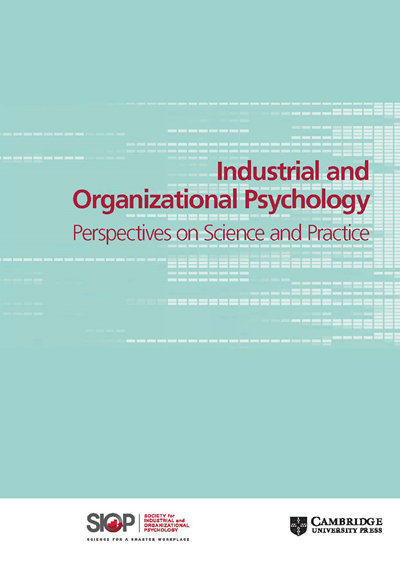利用归因扩增来释放网络审查的潜力,以打击招聘中的性别歧视
IF 11.5
3区 心理学
Q1 PSYCHOLOGY, APPLIED
Industrial and Organizational Psychology-Perspectives on Science and Practice
Pub Date : 2022-09-01
DOI:10.1017/iop.2022.40
引用次数: 0
摘要
Wilcox等人(2022)敏锐地解决了当前网络审查做法对三个主要利益相关者的影响:求职者、招聘经理和组织。鉴于对妨碍公平组织决策的性别相关偏见的认识不断提高(例如,Gaddis,2015),Wilcox等人提出的一个特别重要和及时的考虑是,网络审查可能会对求职者产生歧视性影响。然而,尽管有这种(非常合理的)担忧,即网络审查可能会加剧这种不平等,但我们进一步考虑了相反的可能性,即在某些情况下,它可能具有缓解这种不平等的潜力。为此,我们认为归因增强是一个心理过程,通过这个过程,网络审查有可能削弱不公平和歧视性的招聘决定。本文章由计算机程序翻译,如有差异,请以英文原文为准。
Drawing on attributional augmenting to unlock the potential of cybervetting to combat gender discrimination in hiring
Wilcox et al. (2022) astutely addressed the influence of current cybervetting practices with respect to three main stakeholders: job candidates, hiring managers, and organizations. In light of increased awareness of gender-related biases encumbering equitable organizational decision making (e.g., Gaddis, 2015), a particularly important and timely consideration raised by Wilcox et al. was the potential for cybervetting to have a discriminatory effect on job candidates. Yet, despite this (very legitimate) concern that cybervetting may risk exacerbating such inequities, we further consider the contrary possibility that in certain contexts it may harbor some potential to mitigate them. To this end, we consider attributional augmenting as a psychological process via which cybervetting has the potential to attenuate inequitable and discriminatory hiring decisions.
求助全文
通过发布文献求助,成功后即可免费获取论文全文。
去求助
来源期刊

Industrial and Organizational Psychology-Perspectives on Science and Practice
PSYCHOLOGY, APPLIED-
CiteScore
7.70
自引率
10.10%
发文量
85
期刊介绍:
Industrial and Organizational Psychology-Perspectives on Science and Practice is a peer-reviewed academic journal published on behalf of the Society for Industrial and Organizational Psychology. The journal focuses on interactive exchanges on topics of importance to the science and practice of the field. It features articles that present new ideas or different takes on existing ideas, stimulating dialogue about important issues in the field. Additionally, the journal is indexed and abstracted in Clarivate Analytics SSCI, Clarivate Analytics Web of Science, European Reference Index for the Humanities and Social Sciences (ERIH PLUS), ProQuest, PsycINFO, and Scopus.
 求助内容:
求助内容: 应助结果提醒方式:
应助结果提醒方式:


